Many of us want to know how to get better sleep. Natural sleep tips like using light blocking curtains and sipping on chamomile tea can help, but there’s more to the story. Here are some of the best ways to get your body back in balance and lay the foundation for a great night’s sleep.
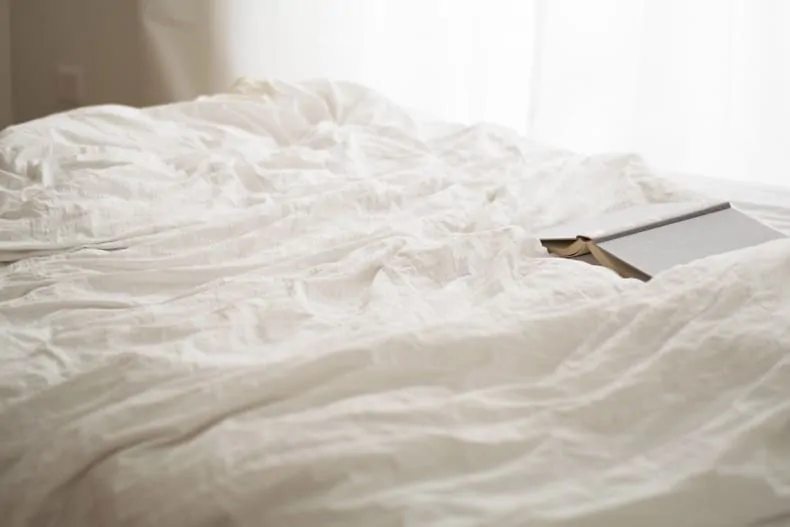
Original post by contributor Erin Long / Revised & expanded by Red & Honey in 2020
Does anyone understand why our ideal is to ‘sleep like a baby’? I’ve spent a lot of nights with babies and let me tell you, I do not want to sleep like one.
But I don’t necessarily want to sleep like an adult, either. While sleep seems like it should come easily, it doesn’t always. In general I sleep well, but between pregnancy insomnia, stressful times, and jet lag, I’ve had my fair share of sleep difficulties.
While at times it’s easy to reach for the melatonin, I’m learning some techniques to help me get a good night’s rest without heading to the medicine cabinet. These suggestions go beyond conventional wisdom, like exercise, chamomile tea, and relaxing baths.
These sleep tips are my must-do’s for addressing sleep issues. There are plenty of alternative practices and remedies for this topic, but if you miss these foundational tips you likely won’t see great results.
My advice? Start here, and move on to more advanced tactics if necessary.
How to Sleep Better: 9 Things to Do
Natural Sleep Tips #1: Avoid caffeine
I know, I’m starting with what will probably be the most unpopular suggestion. When you have trouble sleeping it can seem like the only thing that will get you through the afternoon is a warm cup of caffeine.
But hear me out: caffeine stays in your system for hours. You could still feel the buzz from an afternoon coffee into the wee hours of the morning (without realizing it). Different people metabolize caffeine differently, so it’s hard to say exactly how long of an effect coffee will have on you.
How does it work? Drinking coffee acts directly on the adenosine receptors in nerve cells, which delays our natural circadian rhythm. This rhythm is what tells our body when to be alert, and when it’s time for rest.
Caffeine and Sleep Don’t Mix
One study found caffeine even 6 hours before bedtime had a negative effect on sleep quality. Those who had caffeine 6 hours before hitting the hay slept an hour less than the caffeine free group. The caffeinated group also took twice as long to fall asleep and had more trouble falling back asleep during the night.
Even more surprising, researchers found study participants had “fractured sleep.” They woke up multiple times in the night and didn’t even know it. So that cuppa jo might have more of an effect than we realize!
In this study, caffeine 3 hours before bed delayed melatonin release (the sleep hormone) by 40 minutes. For some, ditching the afternoon espresso may not be enough. Even a low dose of caffeine 16 hours before bedtime can have a negative effect on sleep.
Cutting back on Coffee
Coffee does have some health benefits so not everyone needs to ditch it entirely. Some experts recommend skipping the evening caffeine, while others say to avoid it completely after lunchtime. If you want to go all in and quit coffee, here’s how I did it.
Quitting or cutting back on caffeine can be hard, but here are some tips to beat the afternoon slump:
- Reach for a snack with healthy fat and protein, such as this delicious Bulletproof Milk recipe. You can add cocoa and it tastes just like hot chocolate, or you can add cinnamon (my personal fave!)
- Diffuse an invigorating essential oil, like citrus or peppermint. This Energy blend from Plant Therapy is a fantastic and powerful combo! (They have a pre-diluted roll-on too, if that’s more your style.)
- Get up and get moving: go for a brisk walk around the office, the block, or wherever you may be. Even five minutes can do the trick!
- Opt for energizing foods like nuts, veggies, or low-sugar fruit if you feel an afternoon lull coming on.
- Or, my personal favorite: make a smoothie or matcha latte and add this matchinga powder – a combo of matcha and moringa – an energy-boosting superfood. (Use code REDHONEY10 for 10% off at that site.)
Matcha does have some caffeine, but it’s 70mg per cup instead of the average 160mg that’s in black coffee. Matcha, chai, and green tea are good stepping stones to wean yourself off of higher caffeine drinks (source).
Some people are more sensitive than others, and if you’re having trouble falling asleep or feeling rested when you wake – cutting back on the caffeine is a logical first step. If you’d like to go all in and quit coffee altogether, here’s how I did it.
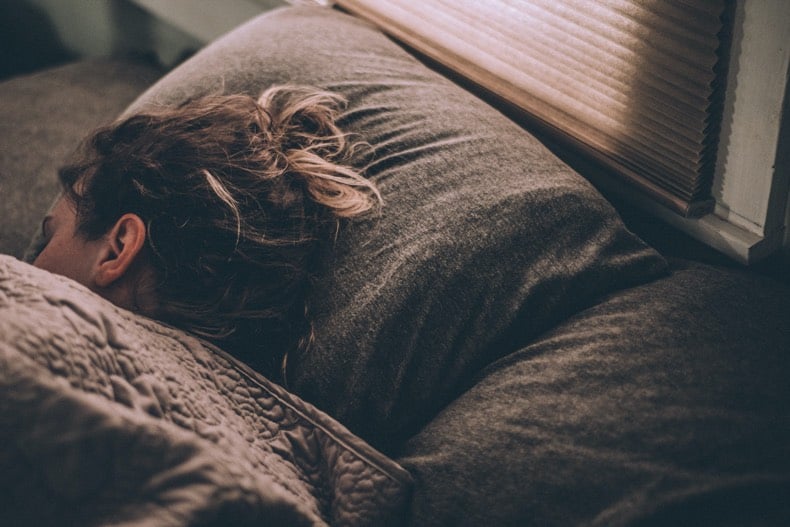
Natural Sleep Tips #2: Limit exposure to blue light after dark
Blue light is the artificial light emitted by electric bulbs, from light fixtures to tablet screens. While it’s great that it allows us to do stuff after sunset, it can alter our circadian rhythm and decrease melatonin production.
Basically, blue light can sabotage sleep. It is hard (read: impossible) to avoid it completely but there are ways to limit exposure.
Simply dimming the lights or having fewer on makes a difference but I recommend using salt lamps or natural beeswax candles once the sun goes down (Wellness Mama has a great post detailing the many benefits of salt lamps). The soothing orange glow from a salt lamp or candle creates a relaxed atmosphere to help prepare for restful sleep.
LED lights are more energy efficient, but they have much higher levels of blue light than regular incandescent lights. Switching to incandescent light, at least after sunset, helps reduce nighttime blue light exposure. Even better if it’s on a dimmer.
Natural Sleep Tips #3. No screens at least an hour before bed (Or, blue-light blockers)
This does fall under the previous suggestion but because of the prevalence of technology in pretty much everyone’s life, it bears addressing separately. Also: the light from devices, tablets in particular, is extra disruptive to melatonin levels.
To be honest – I’m going to admit right now that I’m terrible at this. With young kids, the only chance I have to spend quality time with the internet (or relaxing in front of a movie with my husband) is right before I go to bed. But I’m trying to do better.
For me that means once it’s dark I try to: check email/social media less, read paper books, do things other than watching movies with the hubby (not a bad thing!)
If you’re like me and only get to watch grown-up shows (i.e. anything other than Peppa Pig and Pixar) late at night, you could always invest in a pair of blue-light blocking glasses like these. Hubby and I each have a pair, and lemme tell you: they really make you feel sexy. (Ha!)
Natural Sleep Tips #4: Make sure you’re getting enough magnesium
Magnesium deficiency is linked to a host of health issues, many associated with fatigue and sleep difficulties. When magnesium levels are low, we’re more likely to have restless sleep and wake up frequently through the night. This vital nutrient works by maintaining healthy GABA levels. GABA is a neurotransmitter that promotes quality sleep and calms muscle twitches linked with restless leg syndrome (source).
In this study, researchers looked at the role of magnesium supplements on sleep quality. People given magnesium had better sleep across the board and more balanced hormone levels, like melatonin and blood cortisol. When these hormones are in balance it reduces anxiety and stress on the body, which is also necessary for a good night’s rest.
Getting enough magnesium can also help prevent us from feeling sleepy during the daytime. In this study, women who took magnesium were less likely to need an impromptu nap during the day.
The Best Forms of Magnesium
Magnesium cream absorbs readily into the skin. And several studies show higher blood magnesium levels after applying magnesium oil.
However, most studies on transdermal magnesium involve small study groups and are conducted by companies selling the product. While some researchers point to conflicts of interest and limited evidence, the results we do have are encouraging.
Research is mixed, but it seems topical magnesium may be better absorbed than magnesium supplements. This also bypasses the digestive tract and can avoid digestive problems caused by certain supplements (source).
My Favorite Magnesium Options
A good way to ensure you get enough magnesium is to either use magnesium oil or magnesium lotion (DIY instructions here, or purchase it here.) Soaking in a tub of epsom salts will also raise blood magnesium levels (source).
I find magnesium lotions to be more irritating and sticky, so I prefer to spray on the oil and then put plain lotion on top. I do this right before going to bed and if I’m having particular difficulty sleeping in the morning as well.
You can soak in a hot tub with magnesium flakes, but using the oil is much more cost effective.
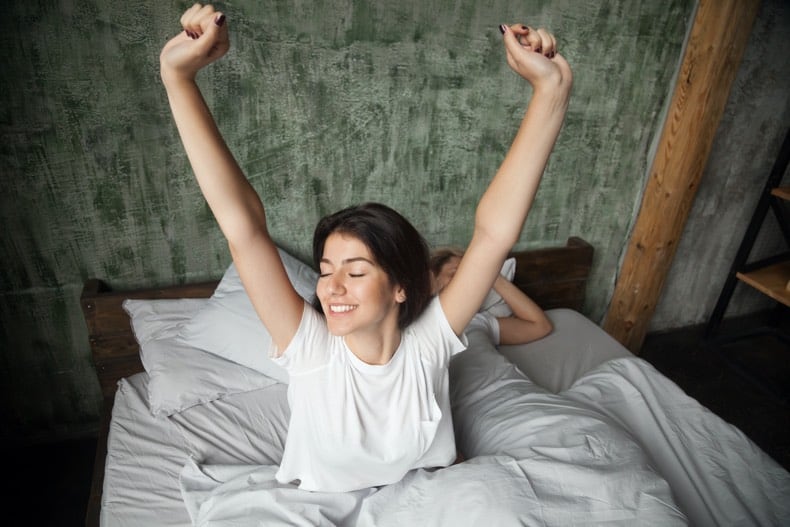
Natural Sleep Tips #5: Use soothing essential oils and herbs
This is the most recent addition to my better-sleep repertoire and I am hooked. I started rubbing 2-3 drops of diluted lavender on the soles of my feet right before bed and add a couple to my pillow (not too much though – it can irritate your eyes). You can also put a few drops in a diffuser while you sleep.
Here’s a list of some essential oils that promote healthy sleep (source):
- Catnip
- Clary sage
- Lavender
- Vetiver – can have the opposite effect for those prone to ADHD symptoms.
- Roman chamomile
- German chamomile
- Ylang ylang
- Sandalwood
- Cedarwood
- Frankincense
- Marjoram
Some of these essential oils smell good on their own. Others… not so much. For example, ylang ylang can be kind of overwhelming, but 1-2 drops ylang ylang combined with 3-4 drops of lavender in a diffuser is more pleasant. And marjoram doesn’t smell good in a diffuser, but it works well when rubbed on the feet.
Natural Sleep Tips #6: Keep it Cool
The neurons in our brain that manage our sleep cycle and circadian rhythms have an on and off switch. When our body temperature drops at night, it triggers that switch and releases melatonin for restful sleep. Even a subtle change is enough to flip the switch.
This study found that when we sleep at the right nightly temperature, we increase slow-wave, restorative sleep and improve sleep quality.
With things like memory foam mattresses and indoor heating it can be difficult to sleep cool at night. The ideal temperature varies by person, but is usually in the upper 60 degrees range.
Natural Sleep Tips #7: Turn Out ALL the Lights
I’ve already mentioned how disruptive blue light is at night, but it can disrupt sleep even without any screens on. Nightlights and light from outside can also have a negative effect on sleep. A salt lamp set on low or placed in the hallway can be a good compromise for nightly bathroom visitors.
Ideally though we’d like to get rid of all lights at night, including the streaks slipping through the window. Blackout curtains are a great way to block any outside light. Especially if you don’t always wake up at the crack of dawn. Be sure to put the curtains up during the daytime so you can easily check for light leaking through.
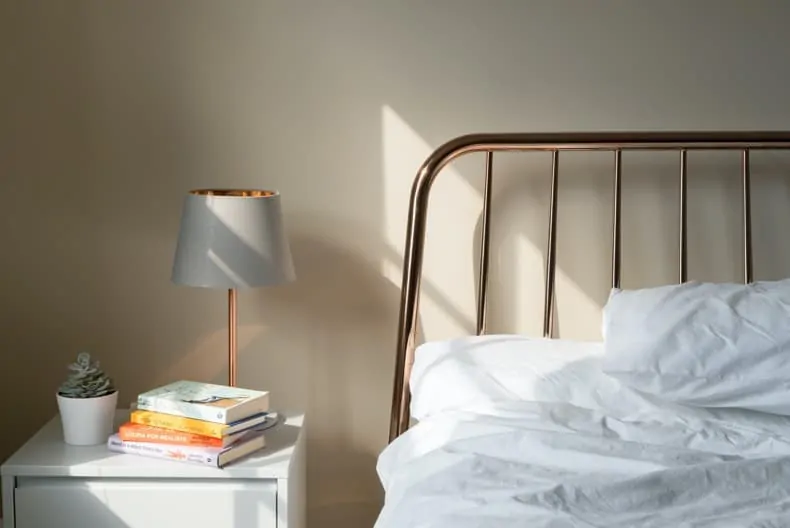
Natural Sleep Tips #8: Set the Space
Blackout curtains – check. Salt lamp – check. Add to that list a nice mattress and comfy sheets. We can avoid blue light, skip the caffeine, and slather on the magnesium, but if our bed is uncomfortable it won’t do much good.
Organic cotton or bamboo sheets are breathable and don’t have the synthetic chemicals found in most fabrics. Healthy sheets aren’t made from products grown with harmful pesticides or treated with other chemicals.
And while we’re at it, let’s not forget the mattress. It’s more than just choosing a soft or a firm one. Most mattresses contain a slew of toxic chemicals that off gas while we sleep (which is one-third of our life!). These chemicals may disrupt hormone function, emit carcinogens, and are linked with asthma, allergies and more.
Our hormones work intricately together to perform many different functions in the body, including sleep. Choosing a healthy organic mattress helps set our hormones up for success and a good night’s rest.
The Bottom Line on Better Sleep
Getting enough rest can be tough, especially for moms of little ones! Fortunately we have plenty of tools in our natural toolbox to help lay the foundation for a good night’s sleep.
The Go-to-Bed Challenge
Despite knowing all of these tips for better sleep, I used to sabotage myself by staying up way too late. It was like my butt was glued to the couch, and the late-night silence was irresistible. I called it BCI (Butt-on-Couch Inertia). 😉
To kick this habit, I created the 21-day Go-to-Bed Challenge, and invited my readers to join me. Thousands of people have taken the challenge in the years since then, and gotten the rest they deserve. And, I’m happy to report that I now get to bed on time, and enjoy a solid night of sleep every night. Life-changing!
[cboxarea id=”cbox-CvMmvuJ8Ig4Rzrpc”]Do you ever have difficulty sleeping well?
If you’ve tried all these natural sleeping tips and are still having trouble falling asleep, you might be dealing with anxiety at night. This post has 12 holistic tips to help you reduce anxiety and fall asleep peacefully.


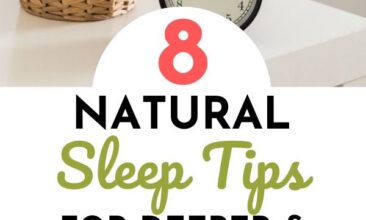
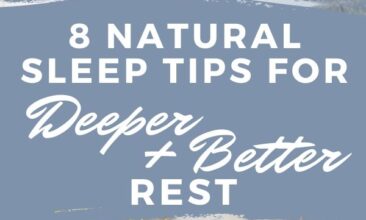


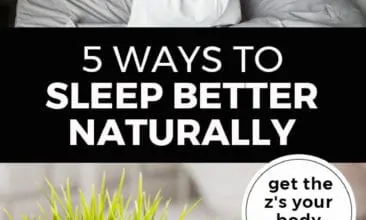
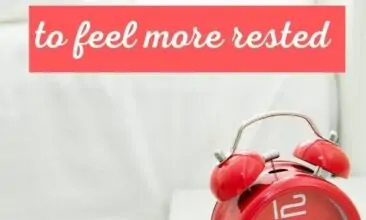






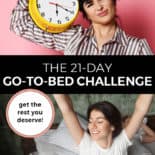





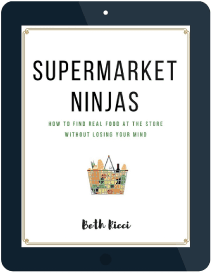







nimra
great article.
Zack
Awesome